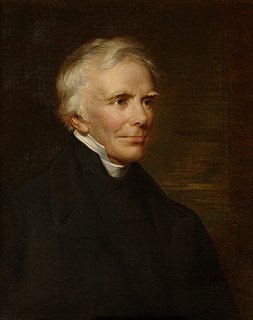
John Keble was an English churchman and poet, one of the leaders of the Oxford Movement. Keble College, Oxford, was named after him.
Richard Hurrell Froude was an Anglican priest and an early leader of the Oxford Movement.

Sir Thomas Armstrong was an English organist, conductor, composer and educationalist. He was from a musical family and his early career was as a church and cathedral organist. From the 1920s onwards he was a broadcaster for the BBC giving talks as well as playing.

George Nevill, 1st Earl of Abergavenny, known as Lord Bergavenny from 1744 to 1784, was an English peer. He married into a branch of the Pelham family seated at Stanmer and briefly held office as Lord Lieutenant of Sussex. Created an earl in 1784, he died the following year.
Alwyn Terrell Petre Williams was Bishop of Durham (1939–1952) and then Bishop of Winchester (1952–1961).

Frederick Keppel was a Church of England clergyman, Bishop of Exeter.
David Lewis Prosser was a Welsh Anglican bishop and Archbishop of Wales from 1944 to 1949.

Edward Stuart Talbot was an Anglican bishop in the Church of England and the first Warden of Keble College, Oxford. He was successively the Bishop of Rochester, the Bishop of Southwark and the Bishop of Winchester.
Henry Wyndham West was an English barrister and Liberal politician.
Walter Lock was an English Anglican priest and theologian, who served as Warden of Keble College, Oxford, from 1897 to 1920.
Cecil Vere Davidge DL was a British lawyer and academic, who served as a Fellow and bursar of Keble College, Oxford, and as High Sheriff of Northamptonshire.
Sir John Walter Buchanan-Riddell, 11th Baronet was a British barrister and baronet. He was educated at Eton College and Christ Church, Oxford before being called to the bar by Inner Temple in 1874. He succeeded his uncle as 11th Baronet in the line of Riddell Baronets in 1892. In 1897, he served as High Sheriff of Northumberland. He was a member of the Council of Keble College, Oxford from 1899 until his death. He died on 31 October 1924, succeeded by his son, Sir Walter Robert Buchanan-Riddell, 12th Baronet, who was Principal of Hertford College, Oxford.
Sir Walter Robert Buchanan-Riddell, 12th Baronet was a British academic. He was educated at Eton College and Christ Church, Oxford. He was Principal of Hertford College, Oxford between 1922 and 1929.
William Charles Edmund Newbolt (1844–1930) was an English Anglican priest and theologian. He was a prominent Tractarian and headed Ely Theological College in Ely, Cambridgeshire, between 1887 and 1890, when he became a canon of St Paul's Cathedral.

Henry Egerton was a British clergyman from the Egerton family. He was Bishop of Hereford between 1723 and his death in 1746.
Richard Baker Wingfield-Baker MP, DL, was a Liberal Party politician, High Sheriff and Deputy Lieutenant in the English county of Essex. Like his father, maternal grandfather, half-brother, and brother-in-law, Wingfield-Baker served as a Member of Parliament.
Christopher Benson was a Cambridge educated theologian who achieved prominence on account of his abilities as a preacher and lecturer. In 1820 he was chosen as the first Hulsean Lecturer. Later he was one of the first to apply the term "Tractarians" to John Keble, Edward Pusey and other pioneers of what came to be known as the Oxford Movement within the Church of England. Christopher Benson was not a supporter, and engaged in high-profile theological controversies on matters such as the "apostolical authority of the Fathers".










